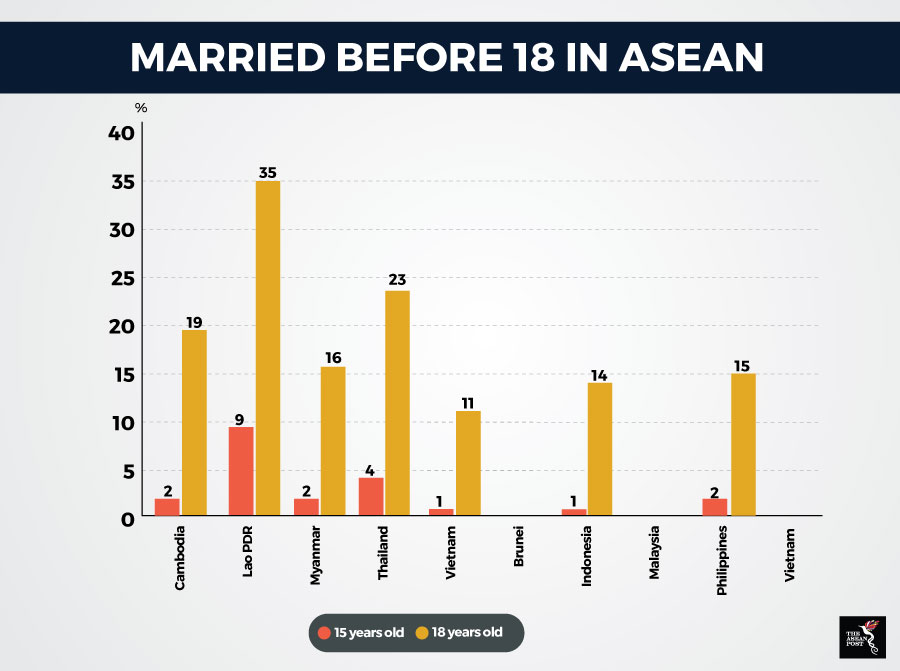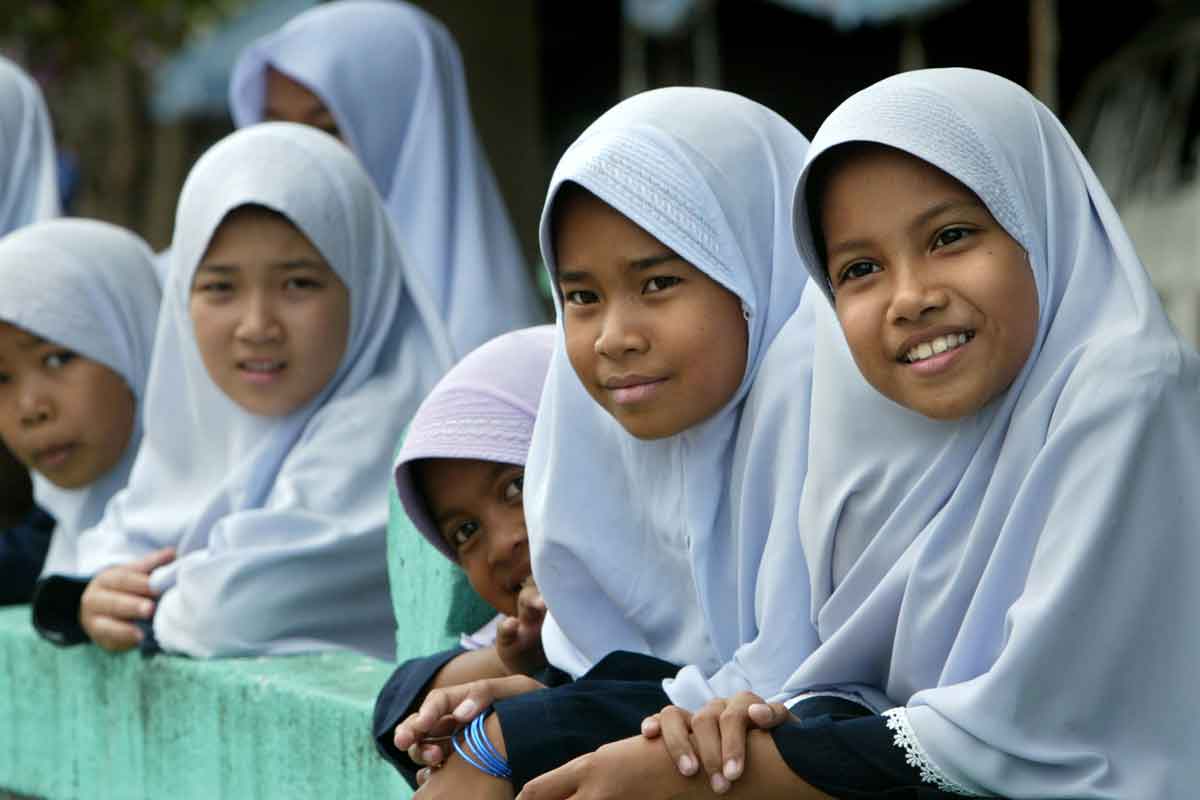Last December, Thai media reported on the Central Islamic Council of Thailand’s (CICOT) decision to pass a new regulation banning children under the age of 17 from marriage. This is the first time the council issued a ban on child marriage nationwide. The decision follows public anger sparked by the marriage of an 11-year-old child to a man four times her age back in July 2018.
Wisut Binlateh, director of the coordination centre for the Sheikhul Islam Office and a senior member of the Islamic Council, told the media about the announcement. Wisut also said that Aziz Phitakkumpon, the Sheikhul Islam of Thailand, who also chairs CICOT, gave his approval for the regulation in late November.
The regulation ensures local mosques cannot grant permission for marriages involving anyone aged under 17 unless an Islamic court gives its permission or the parents sign a document approving the marriage at the provincial Islamic committee office or at the local police station. A special sub-committee was also set up to consider marriages involving children younger than 17 and only allows it if the marriage benefits the spouses. One of the three committee members must be a woman with knowledge of Islamic laws and she must be in charge of questioning and interviewing the girl.
The historic move ends a widespread practice in the southern Muslim-majority provinces of Thailand where girls were married off by poor parents with the permission of the local mosque once the girl had started menstruating. But the move, while a step in the right direction, does not appease everyone, and critics have specifically pointed at a loophole in the new regulation.
National Human Rights Commissioner Angkhana Neelapai-jit said the Islamic Council’s move was not enough. She claimed that without penalties set for violators, the regulation is more like “asking for cooperation”.
A dangerous loophole
When looking at statistics gathered by the United Nation Children’s Fund (UNICEF), Thailand has the highest percentage of underage marriages after Lao. Those married by the age of 15 in Thailand make up four percent while those married by the age of 18 reach up to 23 percent. UNICEF, however, did not have data available for Brunei, Malaysia and Singapore.
“Marriage before the age of 18 is a fundamental violation of human rights. Child marriage often compromises a girl’s development by resulting in early pregnancy and social isolation, interrupting her schooling, limiting her opportunities for career and vocational advancement and placing her at increased risk of domestic violence. Child marriage also affects boys, but to a lesser degree than girls,” UNICEF said.

It is somewhat ironic that the regulation allows for parents of the potential child-spouse to grant permission for their children to be married. The irony comes in play when considering the fact that in the very case which supposedly sparked the decision, the parents had consented to their 11-year-old daughter to be married off to a 41-year-old Malaysian man.
Based on reports in Malaysia, the parents had apparently agreed to the marriage but had imposed a “condition” that their daughter would only be allowed to live with the “husband” when she turns 16. The case became a hot topic in Malaysia when the man’s second wife posted photographs of him and the girl and their alleged solemnisation ceremony.
According to the Borgen Project, a United States (US)-based non-profit organisation, arranged marriages are prevalent in Thailand today where a man from a wealthy family is often chosen because the dowry system is still utilised in the country. The wealthy man will give the bride’s parents money in exchange for her hand in marriage.
“This happens in poor communities in Thailand very often, taking away the possibility for the impoverished girl to receive future education, among other things,” the Borgen Project, states on its official website.
This was concurred by former UN committee member on the Rights of the Child, Sanphasit Koompraphant, when he was quoted as saying that if the 11-year-old girl’s parents received endowment from the man, then they would have violated the anti-human trafficking act as they would have handed over the child to wed the man for monetary benefit.
If that was not enough, UNICEF also notes that there are many factors which interact to place a girl at risk of marriage. One of these factors is poverty.
The dangerous implication here is that on the one hand, parents have the power to grant permission for their underaged children to be married off. However, on the other, if critics are correct, some parents can be bought off. If this is true, what difference does the new regulation make?
Related articles:
